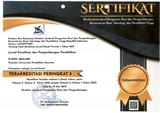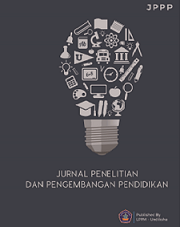Developing Digital Game E-Calf as Self-Directed Learning Media for the Third Grade Students of Elementary School at SD Lab Undiksha Singaraja
DOI:
https://doi.org/10.23887/jppp.v2i3.16286Abstract
This study aimed at developing e – CALF as self directed – learning media for teaching English for third grade students of elementary school. This study was conducted at SD LAB UNDIKSHA Singaraja, in which the subjects of this study were the third grade students in III class. This study used ADDIE model. Since it is still a prototype media, there were only three procedure used namely Analysis, Design, and Develop. The data were collected by using observation sheet, teacher’s interview guide, students’ questionnaire, expert judgment rubric and syllabus analysis. The result of this research is a digital game media named e – CALF as self – directed learning media in form of application. The digital game of e – CALF consists of four topics namely part of body, days, school environment, and animals. To know the quality of the digital media, the result from expert judgments rubric was used. Based on the result of expert judgment rubric, it is find that the digital media of e – CALF is categorized as excellent digital game and also proper to use for learning English for third grade students.Downloads
Published
2018-12-19
How to Cite
Sri Mahadewi, I. A., Mahayanti, I. A. N. W. S., & Utami, I. A. M. I. (2018). Developing Digital Game E-Calf as Self-Directed Learning Media for the Third Grade Students of Elementary School at SD Lab Undiksha Singaraja. Jurnal Penelitian Dan Pengembangan Pendidikan, 2(3), 280–284. https://doi.org/10.23887/jppp.v2i3.16286
Issue
Section
Articles
License
Authors who publish with the Jurnal Penelitian dan Pengembangan Pendidikan agree to the following terms:
- Authors retain copyright and grant the journal the right of first publication with the work simultaneously licensed under a Creative Commons Attribution License (CC BY-SA 4.0) that allows others to share the work with an acknowledgment of the work's authorship and initial publication in this journal.
- Authors are able to enter into separate, additional contractual arrangements for the non-exclusive distribution of the journal's published version of the work (e.g., post it to an institutional repository or publish it in a book), with an acknowledgment of its initial publication in this journal.
- Authors are permitted and encouraged to post their work online (e.g., in institutional repositories or on their website) prior to and during the submission process, as it can lead to productive exchanges, as well as earlier and greater citation of published work. (See The Effect of Open Access)







